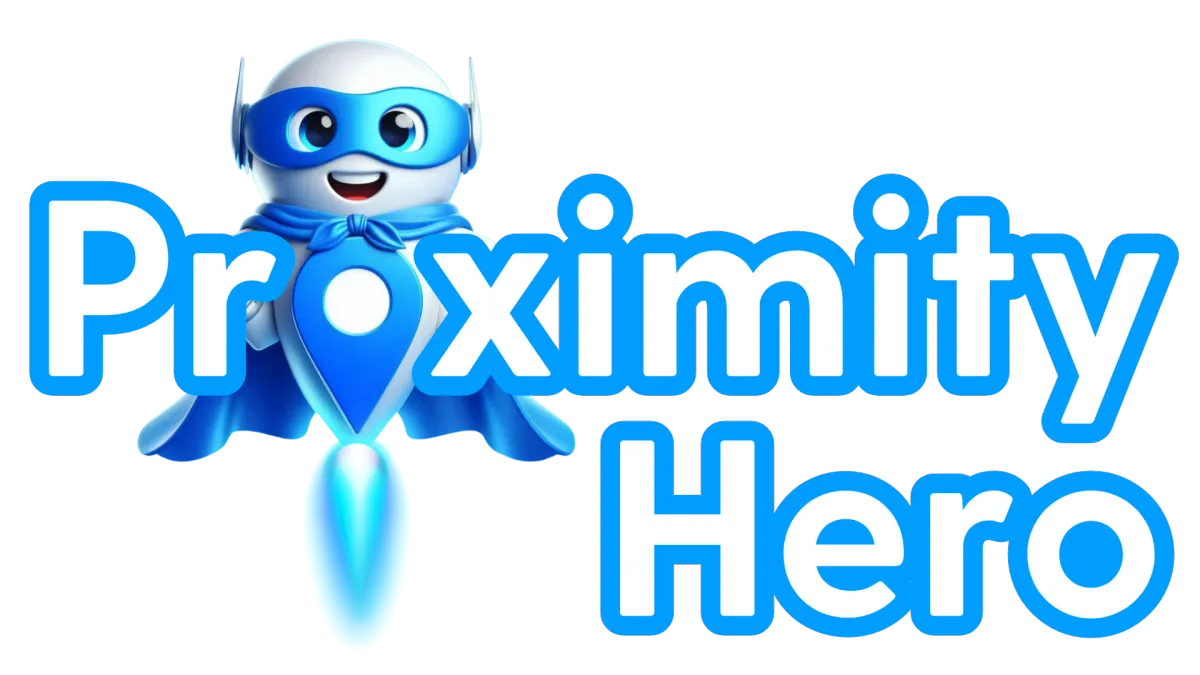Harness the Power of Proximity

Become A Hero
ENJOY A 14-DAY FREE TRIAL ON ANY PLAN (no credit card required).
NO LONG TERM CONTRACTS. CANCEL ANYTIME.
HEROIC HERO
UNLOCKS SOME FEATURES
$49
Per Month
1 Geo-Fenced Location
1 Loyalty Card Design
1 Team Member Account
Manual Pushes
Automated Pushes
Push Scheduling
Custom Recurring Events
Priority Support
Customer Data Export
Early Access To New Features
BEST VALUE
SUPERHERO
UNLOCKS MORE FEATURES
$99
Per Month
10 Geo-Fenced Locations
10 Loyalty Card Designs
10 Team Member Accounts
UNLIMITED Manual Pushes
UNLIMITED Automated Pushes
UNLIMITED Push Scheduling
10 Custom Recurring Events
Priority Support
Customer Data Export
Early Access To New Features
LEGENDARY HERO
UNLOCKS ALL FEATURES
$199
Per Month
UNLIMITED Geo-Fenced Locations
UNLIMITED Loyalty Card Designs
UNLIMITED Team Member Accounts
UNLIMITED Manual Pushes
UNLIMITED Automated Pushes
UNLIMITED Push Scheduling
UNLIMITED Custom Recurring Events
Ultra Priority Support
Customer Data Export
Early Access To New Features
Trusted By 1,300+ HEROES Worldwide
Book Your Free Discovery Call
Let's hop on a quick call to discuss what we can do for you!
FAQs
What is proximity marketing?
Proximity marketing uses technologies like Bluetooth, Wi-Fi, and geofencing to deliver targeted content or messages to individuals based on their location.
What types of businesses can benefit from proximity marketing?
Any business with a physical location can benefit. Some of our HEROES include: Restaurants, Coffee Shops, Food Trucks, Barber Shops, Vape/Smoke Shops, Event Venues, Retail Stores, Gyms, and more.
What is a Proximity Push?
A proximity push is a type of push notification that is triggered based on the physical proximity of a user to a specific location.
Here's how it works: Proximity push notifications rely on technology known as a GPS Geofence. This technology defines virtual boundaries around a physical location, such as your business or your competitors' business.
Triggering Event: When a user's mobile device enters or exits the defined proximity zone, it triggers a signal.
Delivery of Notification: Once the trigger event occurs, a push notification is sent to the user's device. This notification can contain relevant information, offers, alerts, or reminders related to the location or event the user is near.
In Summary: The key advantage of proximity push notifications is their contextual relevance. They deliver information or promotions at a moment when users are most likely to find it useful or actionable because they are in close proximity to a relevant place.
Why choose a "Push" over traditional methods like Email or SMS (Text Messaging)?
Instant Delivery: Push notifications are delivered instantly to users' devices, making them ideal for time-sensitive or urgent messages where immediate attention is required.
Higher Engagement: Push notifications typically have higher open rates compared to emails or SMS, especially since they appear directly on users' screens as alerts. This can lead to better engagement with your message.
Do businesses need user consent to send push notifications to phones?
YES! It's important to note that push notifications of any kind requires user consent which often relies on users installing an app; or in our case, a card added to their Apple Wallet or Google Wallet.
During the signup process, your customer checks a box that grants your business authorization to send push notifications to their mobile device.
Additionally, if there were no requirement for an opt-in and opt-out process, anyone could potentially spam individuals anywhere and anytime. This lack of regulation could lead to widespread chaos and public outcry, particularly concerning federal privacy regulations.
Does this technology enable me to track or view the real-time location of my customers?
Absolutely not! Using such technology would be a serious invasion of privacy, and customers would most likely opt-out if they knew you were able to track their current location.
Why should I provide an incentive to my customers? Wouldn't they naturally be inclined to add my businesses "card" to their mobile wallet?
This sounds great in theory...but you'll quickly find that unless you give customers a reason to add something to their phone, they likely won't see the value in doing so...which means you won't be able to harness the power of proximity marketing.
How do I convince a customer to grant me this kind of power over their phone?!
Great Question! It's simple. Your rewards program. When they sign up using your businesses unique QR code or URL link, they must check a box that authorizes your business to communicate with them.
What if my business already has an established rewards program in place?
That's great news! You're already ahead of the game. If that's the case, we recommend you keep doing what you're doing. We'll gather the details of your current rewards program and suggest either replicating your program OR offer a super simple straightforward alternative that can seamlessly complement your existing program.
Can I access usage reports to gauge the effectiveness of my marketing efforts?
Absolutely! Our dashboard provides robust analytics that can be segmented by day, week, month, year, all-time, and custom ranges. Our HEROES appreciate this feature as it allows them to track the frequency of customer visits accurately—a level of traceability that many alternative marketing methods simply can't offer.
I don't like the idea of a rewards program...it cheapens my brand! My customers have been paying full price, and my business has been doing just fine without one for all these years!
Ok...that's a valid statement we hear often...not really a question...Buuuuut did you know that more than 90% of companies have some form of loyalty program in place?
Infact, here are 10 proven statistics based on numerous business studies about brands that implement some form of rewards program:
Increased Customer Retention: Businesses with loyalty programs see up to 80% higher retention rates among their existing customers compared to those without.
Higher Customer Spending: Members of loyalty programs tend to spend on average 20-40% more per transaction than non-members.
Improved Customer Engagement: Brands with rewards programs experience up to 50% higher engagement rates with their customers.
Boost in Purchase Frequency: Customers enrolled in loyalty programs make purchases more frequently, with some studies showing a 20% increase in visit frequency.
Attracting New Customers: Approximately 61% of customers are more likely to choose retailers that offer a loyalty program over those that do not.
Word-of-Mouth Referrals: Loyalty program members are more likely to recommend brands to others, contributing to increased word-of-mouth referrals by up to 70%.
Data Insights and Personalization: 83% of businesses with successful loyalty programs use data to personalize their customer experiences, leading to more effective marketing strategies.
Cost Efficiency: Acquiring a new customer can cost 5-25 times more than retaining an existing one, making loyalty programs a cost-effective strategy.
Brand Differentiation: A well-designed loyalty program can differentiate a brand from its competitors, influencing purchase decisions for 75% of consumers.
Overall Business Growth: Companies with effective loyalty programs can experience revenue growth of up to 10% annually.
Why opt for a mobile wallet "card" instead of using a dedicated app?
Apps take up phone storage. When customers run low on storage, apps such as rewards programs are often deleted first, meaning you will lose the ability to send your customers notifications. Additionally, developing an app with this caliber of technology costs tens if not hundreds of thousands of dollars to develop, making it impractical and financially unfeasible for small businesses to pursue.
Contact
Proximity Hero, LLC
© Copyright 2025. All Rights Reserved.
